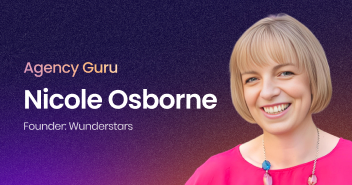Just uploading a website is clearly not enough in the present era. In order to get a regular flow of visitor, it is essential for all website owners to conduct SEO activities on their websites. SEO or Search Engine Optimization is a set of practices which help in attaining relevant web traffic by making a website search-engine-friendly.
For ecommerce shops made on Magento, SEO is essential. However, many find SEO troublesome to tackle. This is why we have seen dedicated professionals which are invested in doing SEO effeciently for Magento websites. Paul Rogers is one such fellow.
Having worked with top brands like Fashion Bunker, Ambush Board Co., and Bloomsbury Publishing, Paul is a trusted figure in the SEO industry, especially in the UK. He has a hand behind many successful online projects. In this interview, we have discussed about the difficulty of using SEO in Magento and which tools and resources can help you out. He also shares how he sees SEO evolving in 2015.

Cloudways: Paul, you have spent last 8 years in digital marketing especially in ecommerce. How did you start at first? What were the challenges at the beginning? Who were your first mentors?
Paul: I initially began working for an agricultural governing body in a junior role that was primarily focused on digital marketing. As I was a lot more technical than my colleagues, so I gradually moved more towards focusing on the website and online marketing. As part of this, I spent a lot of time working with the company’s web agency, GPMD, who taught me a lot about SEO and other customer acquisition channels.
I later joined GPMD to lead their digital offering. I owe a lot to Mark, who owns GPMD, who gave me a lot of advice and tuition whilst I worked in this role.
After working in this role, I joined a small retail company in Oxfordshire, where I managed the SEO for 10 ecommerce websites, which gave me a lot more practical experience and helped me get to grips with the technical side of SEO. By this point, I was obsessed with SEO and was working on my own websites and giving free advice to other companies in my own time.
Cloudways: You have worked with 8 organisations until now. Which one do you think is the best ever experience? What 5 things you have learned from there?
Paul: I would definitely say, I learnt the most whilst working for GPMD as I went from being the sole “digital representative” and working with relatively small clients to managing a team of five and working with much bigger retailers. My experience in this role taught me a huge amount about team management (mainly that I’m not particularly good at it), client management, the operations side of running a department (P&L, project and time planning, client on-boarding, etc.), and also the new business side of things.
In addition to that, I worked on lots of big SEO projects for large Magento retailers which helped me to develop my skills in this area. This is now where I focus the majority of my time.
The five main things I learnt were probably focused on:
- Magento SEO (key technical problems, optimum config, etc.)
- Client management (what clients care about, what they don’t care about, vanity metrics, etc.)
- Magento platform in general (general problems and fixes with the platforms, good modules, bad modules, config, etc.)
- Hiring good people (the value of experience and hiring based on personality, etc.)
- The basics of running a business (P&L, time management, tax, etc.)
Cloudways: You have worked with companies across the globe. Tell us what are some of the biggest challenges companies are facing, especially those running their ecommerce websites on Magento.
Paul: Most of my clients come to me with very specific problems which are generally technical issues or post-migration problems. The main technical problems people tend to have are usually:
- Issues with the Magento rewrites (as I wrote about here)
- Issues with dynamic pages being indexed (causing over-indexation issues and in some cases, Panda problems)
- General configuration issues
- International SEO (issues around where content is being served)
There are lots more, but these are the biggest ones that result in people asking for my help.
Cloudways: You are a Magento SEO consultant for a long time. What is difference between doing SEO with Magento and WordPress? Is it difficult to optimize Magento for search engines? What tools do you use to audit Magento websites?
Paul: Magento is a very technical, complex platform with a lot of customization options whereas WordPress is a lot more simplistic when you’re using it out-of-the-box. In addition to that, WordPress has a huge amount of easily accessible documentation and modules.
Magento, out-of-the-box, has a lot of duplicate content issues and some of the core functionality, such as the rewrites, can also cause SEO issues. These issues are a lot more complex to fix as well as Magento is a lot harder to develop on and again, it doesn’t have the same level of documentation that makes it much harder to overcome very technical issues.
When I complete audits on Magento websites, I use lots of different tools, such as Deep Crawl and Screaming Frog for crawling, Google Webmaster Tools and Google Analytics (for analyzing trends), technical tools for checking things like JS issues, header response codes, performance etc., and then various link data sources (depending on the type of audit).
Cloudways: Magento is complex content management system. What are five most important factors do you suggest to optimize it for search engines? What are some SEO extensions do you recommend?
Paul: I obviously recommend my own extension MageSEO, but I also recommend MageWorx as it has a lot of the same features. The five most common factors, in my opinion, are:
- Indexation of dynamic pages (layered navigation, pagination, etc.)
- Issues with Magento rewrites (causing URLs to change and disappear, etc.)
- Poor use of static pages (relying on filter pages rather than creating quality landing pages)
- Configuration issues (bad canonical tag implementation etc., duplicate products etc.)
- Feed-related issues (This is a problem for all platforms, but it’s massive.)
Cloudways: Website speed is one of the most important factors in SEO. What are some tools to analyse website speed that you use and what are some ways to speed up a Magento website?
Paul: I’d say that it’s not one of the key factors at this point, but it’s extremely important from a user experience perspective. I use Pingdom, Google Analytics and Sitespeed.io to analyse performance and find issues.
Cloudways: You are a writer for SEJ, SmartInsights, and Econsultancy. How did you start blogging? Do you think that every digital marketer should blog? Who is your blogging inspiration?
Paul: I started blogging about 7 years ago, mostly about link building and technical SEO, but I started blogging properly when I joined GPMD. I wrote a lot about Magento SEO there and then continued on my site and others when I left.
Magento and ecommerce SEO are the only things I’ve really blogged about in recent years, because this is where I have the most experience.
I’d say that people should only really blog if they want to blog. I did it early on to try and raise my profile a bit and it has really helped me to become associated with the Magento platform, but I know plenty of people who don’t blog and have developed a far better reputations through speaking at events, etc.
I tend to learn more from technical content, so a lot of the blog content I read is focused on solving problems. I don’t really tend to follow too many authors. I look more at individual pieces.
Cloudways: Magento ecommerce stores usually suffer from internal and external duplication as products have similar descriptions. What will you suggest to safeguard against duplication problem in Magento?
Paul: My recommendation for on-site duplication is usually to use meta robots tags, purely because it works and meets the criteria to submit manual removal requests in Google Webmaster Tools. If it’s a very large website or it’s something like a multi-faceted filters or session IDs, which can result in a huge amount of dynamic URLs being generated, I’d use the robots.txt to prevent issues with crawl budget, but in most cases I use meta robots.
My optimum option is a good implementation of the canonical tag; however, this doesn’t always work and will take a long time to fix any existing issues, which is why I rarely rely on this.
For external duplicate content, I recommend clients stay vigilant with their content and avoid allowing others to use their feed etc. (or having a second feed). In some cases, I’ve recommended that they rewrite all of their product copy.
Cloudways: Google is now showing “Mobile-Friendly” in SERPs as an indicator. How do you see that as an experienced SEO? Did you notice any impact in any of your projects?
How To Make Magento Website Mobile Friendly
Paul: I’ve not directly seen any impact on CTRs, but that’s probably because most websites are mobile friendly and it only really impacts generic or product level queries. It wouldn’t impact a query where the user is looking for a brand or a specific result.
Cloudways: In general, how do you think SEO will evolve in 2015? List 5 predictions that you have in mind.
Paul: I think there’ll continue to be more focus on link generation with more updates around Penguin and more focus on targeting websites that have clearly attempted to manipulate the algorithm, probably focusing on specific tactics as well as trends. We’ve seen this continue through 2014 and I’d be surprised if it wouldn’t continue through 2015.
I think there’ll also be more focus on user experience as a signal, which is a trend we’ve seen over the last few years anyway—so more weighting on mobile experience, performance, user responsiveness, etc.
Abdur Rahman
Abdur Rahman is the Magento whizz at Cloudways. He is growth ambitious, and aims to learn & share information about Ecommerce & Magento Development through practice and experimentation. He loves to travel and explore new ideas whenever he finds time. Get in touch with him at [email protected]


